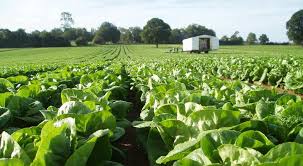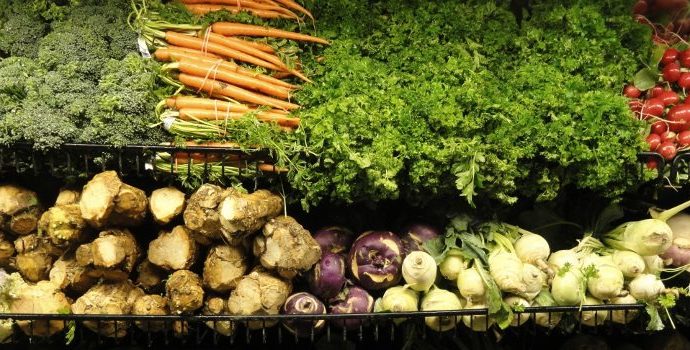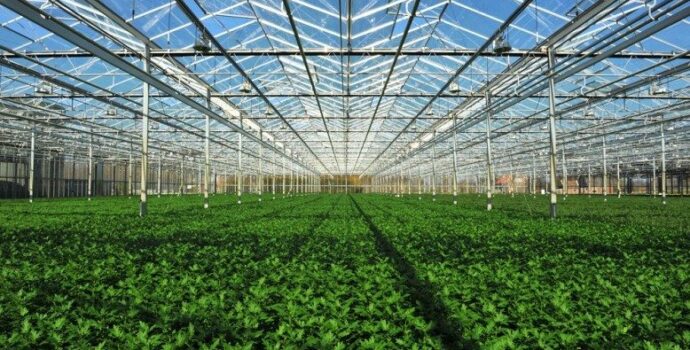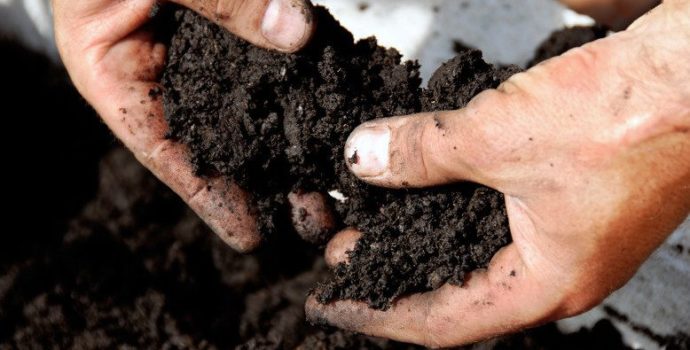Horticulture Council Report May 2024
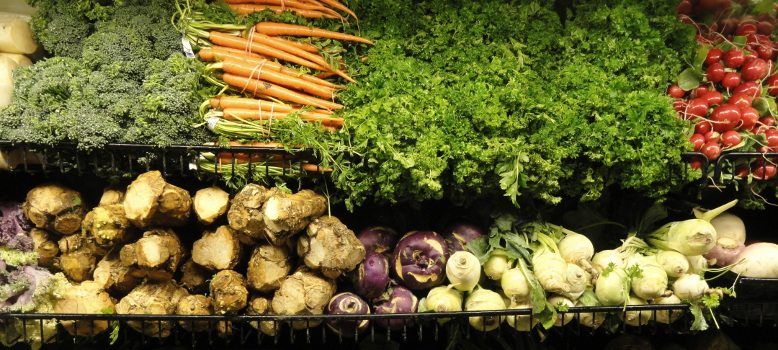
Market Report
This year’s weather to date has delayed all crops and planting schedules. This year has been extremely difficult for growers in all subsectors, with those in the field vegetable sector and potato sector the most affected due to the outdoor nature of growing operations. The extreme weather dominated by intense rainfall has been well documented in the media over the past few weeks. These adverse conditions are compounded by the fact that input costs have not abated and in the case of staffing have significantly increased with double digit inflation.
Field Vegetable Sector
In the field vegetable sector, saturated ground conditions have meant that very little early spring plantings have occurred. Some planting progress took place in the past week two weeks when weather conditions improved. Many growers are at least four weeks behind schedule. Major damage has been done on the headlands on many fields which were planted earlier, and it is estimated that this alone will mean a reduction of a minimum 10% in these fields, not taking into account the soft rots which will also likely occur. Extremely wet conditions since last Autumn have also meant that yields were significantly reduced on all winter crops, such as carrots. Extremely challenging harvest conditions have also increased the cost of harvest and staffing requirements.
Protected crops
Reduced light intensity levels have caused the season to be delayed for the majority of protected crops. It is reported that delays of at least 3 weeks have been experienced so far. In normal years, the first tomato crops would be ready to pick around the middle of March, this was extended well into April this year. This is a direct loss of yield for growers and therefore margin for growers. Additional staffing costs because of repairs due to bad weather and delays because of inclement conditions will be significant, especially with the increases in staff costs.
Apples
The inclement wet weather conditions have caused damage to access roadways and pathways in orchards and significant costs will be incurred on this remedial work. Some root damage, due to wet weather, may also affect the crop yields later this season.
Amenity
Reduced light levels have impacted the amenity sector in terms of growth rates and markets. Wet weather has caused significantly subdued sales for the sector.
Mushrooms
The cost and availability of straw as a direct result from the weather conditions is having a huge impact on the mushroom industry. This extremely wet spring will likely impact the availability of straw this year and current stocks are at an all-time low.
Input Costs
Teagasc produced a detailed analysis of input cost inflation across the horticulture sub sectors last month 1. This years input is on top of double digit inflationary figures for the previous two years. Detail of the increases are outlined in the infographic below. The environment in horticulture is always evolving. As outlined in the Teagasc report, Brexit, Covid-19 and the Russian invasion of the Ukraine characterised the input increases from 2021 – 2023, the year input costs are focused around (climate change) weather events and staffing increases.

Three-year averaging of input costs gives a clearer picture of what the sector has endured in terms of costings. This is the third year that Teagasc have produced the input cost analysis. Since the first report of this type in 2021, combined horticultural inputs have risen by on average 40% which is detailed below. Although the market did respond to the input costs, in most cases it has been low figure double digit increases. Additional supports are necessary for the sector.

Staffing is a key input on all horticulture farms. In 2024, labour cost is the key driver of inflation and it outweighs reductions in other input categories including energy. Labour represents on average 40% of total input costs for most horticultural sectors. As an input, it has increased by between 12.5% and 24.3% depending on sector dependence on the General Employment Permits (GEP) and a combination of factors, which include the national minimum wage (NMW) increases. The below table from the Teagasc report highlights the increase in wages.

Work Permits/Staffing
Although the provision of 1000 additional general employment work permits is welcome, the revised salary roadmap is unworkable and will have crippling consequences for the industry. For a farm to advertise at €30,000 for new employees would be effectively like setting a new minimum wage in the horticulture sector. This announcement at such short notice is unacceptable.
Ireland is an outlier as it is one of the only countries in Europe that does not have a permanent structured work permit scheme to support the sector. The long-awaited seasonal work permit scheme has been pushed out to Q1 for 2025, therefore, although not entirely fit for purpose, the current General Pilot Permit is the only scheme the sector currently has access to.
All horticulture/farmer employers were excluded from the Increased Cost of Business Scheme (ICOB) which is a once-off grant to help small and medium businesses offset the increase in minimum wage as the sector is exempt from commercial rates. Therefore, there is no support mechanism for the horticulture sector to offset any of the increased costs.
IFA made a number of political engagements on this and met with Minister Neale Richmond, Minister Simon Coveney and Minister Peter Burke. The main asks included to maintain the status quo in terms of the GEP salary proposed roadmap and expedite the seasonal work permit scheme.
Food Regulator
The office of the new Agri-Food Regulator was launched in December. This new State body tasked with regulating the food supply chain, An Rialálaí Agrabhia, will play a very important role in bringing fairness back into our food supply chain and level the playing pitch in negotiations between farmers, processors and retailers. Former IFA President Joe Healy will chair the Board. More information is available on https://www.ifa.ie/campaigns/agri-food-regulator-up-and-running-next-month/
Activity since last National Council
- As above IFA made several political engagements on the issue of work permits and soaring staff costs since the announcement in December. Representatives of the fruit and vegetable and mushroom committees met with Minister Neale Richmond, Minister Simon Coveney and Minister Peter Burke.
- IFA held a National Horticulture meeting in the City North Hotel on March 6th. The event was very well attended and included industry presentations from DAFM, Teagasc and Bord Bia.
- The horticulture grant scheme was over-subscribed this year. IFA are liaising with DAFM on this.
- IFA attended a meeting of the minor uses working group that took place last month in Backweston.
- IFA participated in the Irish Apple Growers Association conference in Oakpark last month.
- A meeting of the IFA Fruit and Vegetable Committee took place on 12th of February in the Farm Centre.
- The IFA/IHNSA ran a successful Trolley Fair for the amenity sector in February. The event took place in White Agri Lusk, Co. Dublin.
- A meeting of the IFA mushroom committee took place on the 21st of February.
- IFA attended a meeting of the Horticulture Industry Forum sub-group. This group have now met with all retailers as an initial engagement on the National Horticulture Strategy.
- IFA continues to work with Bord Bia to deliver the ‘Life is Better with Fruit and Vegetables’ promotion. The promotion is 80% funded from the EU with the balance supported by growers. More info on https://fruitnveg.ie/
- IFA continued to liaise with all retails and packers on how the season is unfolding, the weather conditions, staffing costs and all other issues.
- IFA put a submission to DAFM calling for an extension of the Horticulture Exceptional payment scheme this year to include all horticulture sectors.
EU/COPA Developments
- IFA continues to engage with our COPA COGECA counterparts on all issues.
Upcoming Events / Issues
- The EU promotional campaign for Fruit and Veg is now underway. More information can be seen here https://fruitnveg.ie/. The promotion is 80% funded from the EU with the remaining contribution from growers.

